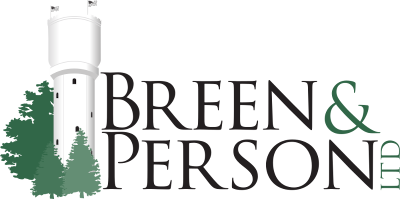It’s sad and unfortunate that we feel that we have to write this article, but it’s important to let you know that criminals are quickly developing scams and fraud schemes to take advantage of the COVID-19 crisis.
First, find reliable sources of information and when in doubt, stop and verify.
The Minnesota Attorney General, the Better Business Bureau of Minnesota / North Dakota, the US Department of Justice, the Federal Trade Commission (FTC), and the Federal Communications Commission (FCC) provide up-to-date information about COVID-19 scams and other scams on their websites. Be sure to check these resources if you suspect you’re being targeted by a scammer.
Your local professional advisors are here for you, too. Be sure to contact your local and trusted attorney, financial advisor, accounting firm, insurance agent, real estate broker, lender, or closing company, if you have questions about whether an email, offer, or government program is legitimate. For businesses, the Cass County Economic Development Corporation and Brainerd Lakes Area Economic Development Corporation (BLAEDC) are good resources. Just call — we are ready to answer your questions.
You should report a suspected scam to the Minnesota Attorney General’s office, and you can do so online. If you’ve been a victim of a scam, you should report it to your local sheriff’s office using the non-emergency number.
You can visit Coronavirus.gov for the latest official information from the Coronavirus (COVID-19) Task Force and to find out what the government is doing at the local, state, and federal level. Visit the websites for the Centers for Disease Control and Prevention (CDC) and the World Health Organization (WHO) for health and medical information about the Coronavirus.
Second, be aware of the following COVID-19 scams.
Coronavirus treatments, home test kits, and vaccinations offered for sale online or through social media. At this time, no consumer products are available online or in stores to prevent, test, or treat Coronavirus.
Text messages from ‘government agencies’ on mandatory COVID-19 tests or the U.S. Census. One text scam says that a person must complete an ‘online’ COVID-19 test in order to get a stimulus check. Another says that a census form must be completed to get a stimulus check. They direct you to official looking websites and require you to provide personal information, financial information, or pay a fee to get your government benefit or stimulus check. These are scams. (As I write this article, I just received such a text message!).
Calls demanding money to treat a family member from an alleged doctor or hospital personnel.
Calls or texts offering student loan relief. Watch out for up front fees and pressure to ‘sign up quickly or miss your chance’.
Work-at-home schemes offering high hourly wages for minimal work and no interview. Watch out for job offers that require you to pay a fee, pay for training, require a kick back of overpaid wages.
It’s no surprise that criminals are posing as charitable organizations looking for donations to help those in need during this COVID-19 crisis. Be wary of such direct solicitations. Visit or contact your favorite local charity directly and find out how you can help.
Scammers are targeting businesses, too. In many of the same old ways – phishing emails with malware, impersonating company CEOs or I/T personnel, fake online sites offering needed supplies, demands for information from a purported government agency. The disruption of closed offices and working remotely can make businesses more vulnerable to these schemes. Business owners and their employees need to be extra vigilant during this time.
There’s lots of real help out there for individuals and businesses to cope with the COVID-19 crisis. Our state government and federal government have initiated multiple programs and passed legislation to support us and put funds into the economy. The level of support is unprecedented. Just be wary of something that sounds too good to be true, and take the time to make sure an offer or program is legitimate.
Any requests for topic suggestions may be sent to rene@breenandperson.com. Although we cannot give you legal advice through the column, we can provide some general information that may be helpful for you to know. Our purpose is to educate and we hope that you can take something new away from this column each time you read it.

 Directions
Directions Contact
Contact Call Us
Call Us